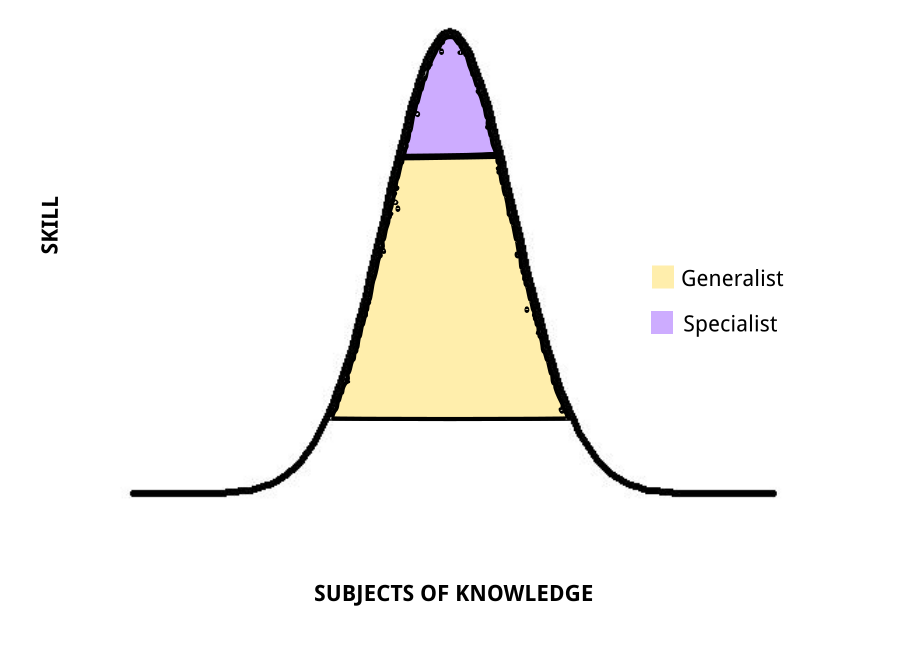As a newly graduated professional, I wondered whether I should market myself as a generalist or a specialist. Of course, as a recent grad, I am certainly not an expert at anything yet. I certainly considered myself a generalist. As a creative, I’m drawn to things I don’t know much about. This passion has led me to become proficient in many skills.
Liberal artists will tout about being “well rounded” and be quick to point out the successes of Renaissance men through history. However, when it comes to professional presentation, I’ve found that the generalist does not find similar favor with industry. I’ve come up with some reasons for why I think this is the case and I offer an explanation for why it’s in your best interest to specialize.

Defined broadly, a generalist is one who is proficient in many skills often spanning multiple fields. Conversely, an expert is one who has comprehensive and authoritative knowledge in a specific field.
From a hiring manager’s perspective, she’s trying to fill a role with the best possible candidate. In a world filled with generalists, the expert/specialist who fits the bill will always win. There are very few expert-generalists in this world and most of them are doing things like founding their 3rd company or leading Space X; not applying to jobs.
What about those job postings which specifically ask for generalist qualities from creatives. It has been my experience that these postings come from smaller organizations looking for one employee to handle most of their creative pursuits. For reasons which will become clear, you might consider avoiding those roles for risk of branding yourself as a generalist.
As a young generalist myself, I still have a handful of related skills which I enjoy doing much more than the others. This is where I have chosen to focus and work to develop an expertise. After beginning to do so, I’ve recognized potentially infinite gains from making the switch from generalist to expert.
You Can Charge More
As a generalist, your positioning is based on your price – to be competitive, you will have to lower the price for your services. This is true whether working for an employer or a client. As an expert, your positioning is your expertise. To compete, you only have to prove more competence and authority in your field than the handful of other experts. An expert gets to charge more.
You Can Build Authority
Being an expert means you become an authority. This means that employers or clients will cede authority to you when it comes to matters of your expertise. Creative liberty can be very fulfilling.
You Can Still be a Generalist
Choosing to specialize does not mean abandoning generality. Those who are especially driven can do both, though effort placed in deepening expertise may prove to be a better investment in the workforce than efforts placed elsewhere.
You Won’t be Bored
I struggle with becoming disinterested in what I once found exciting. This is a struggle I find many creatives have and it is the feeling that drives the generalist. Picking a specialization is an important choice and one that should come naturally (maybe after some time pressure i.e. Graduation). They key is that what you specialize in should never bore you. For generalist creatives, this means refining your passion to that one field that perhaps underlies all your other passions.
Disclaimer: much of this thinking came from reading The Win Without Pitching Manifesto by Blair Enns

Leave a Reply